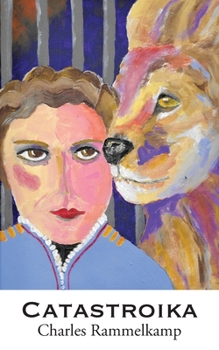Catastroika
In a sequence of poems in the dramatic monologue style, Charles Rammelkamp's Catastroika covers a century of Russian history from the late Nineteenth to the late Twentieth, in the voices of a fictional Russian Jew, Alexander Federmesser (Sasha) and Maria Rasputin, the sole surviving daughter of the "mad monk," Grigory Rasputin, the infamous spiritual advisor of the Romanovs, the last Russian Tsar, Nicholas, and his wife, Alexandra. Focusing on Grigory Rasputin largely through the eyes of his daughter, we read about the social turmoil in Russia that led to the Bolshevik Revolution, the war between the Red Russians and the White Russians, the excesses and cruelties of the Communist Party. We also learn, through Sasha's words, about the Anti-Semitism that pervades the whole era.
Both Maria and Sasha escape Russia and come to America. Sasha settles in Baltimore, where he meets his future wife, Riva, and makes a family and a life while always reliving the terrors of his early years. Maria dances in cabaret shows in Europe before becoming an animal trainer with the circus and later, after being mauled by a bear, a "Rosie the Riveter" for the United States during World War Two.
We follow both Maria and Sasha throughout their lives. Larger than life characters like Harry Houdini and Vladimir Nabokov make cameo appearances. While Maria dies in California in 1977, Sasha, an old man by then, survives through the collapse of the Soviet Union in 1991. In so many ways, the sweep of Russian history mirrors his own life, and of course Maria's, and though murdered in 1916, Rasputin himself, his reputation, likewise undergoes change, like the city of Saint Petersburg itself, where so much of the drama in Catastroika takes place.
Related Subjects
Poetry




